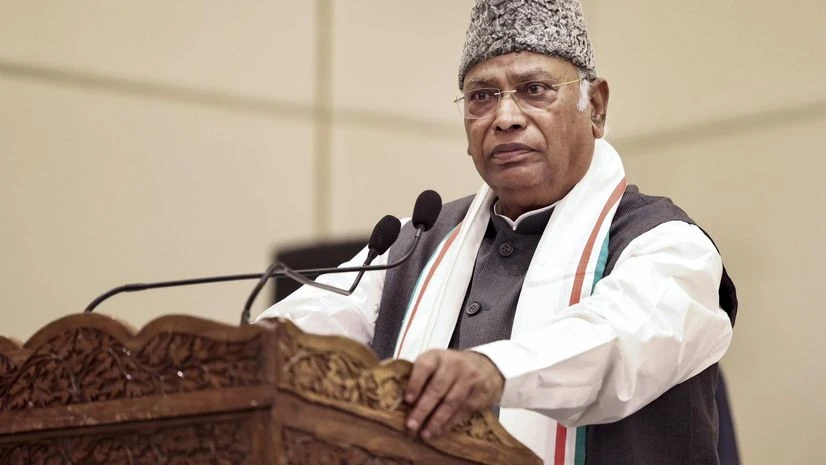Congress President Mallikarjun Kharge on Thursday dismissed the ‘One Nation, One Election’ proposal made by the Prime Minister Narendra Modi-led Bharatiya Janata Party (BJP). Speaking to reporters, the Congress leader said that such a sweeping electoral reform is unattainable without bipartisan consensus in Parliament.
Congress President Kharge said, "What PM Modi has said, he will not do it, because when it comes in the parliament, he has to take everybody into confidence, then only this will happen. This is impossible, 'One Nation One Election' is impossible."
“A reform of this scale cannot be imposed unilaterally; it demands a broad consensus,” Kharge said.
VIDEO | "What PM Modi tells, he won't do because unless this Bill comes in Parliament, he has to take everybody into confidence, then only it will happen. One Nation One Election is impossible..." says Congress president Mallikarjun Kharge (@kharge) on 'One Nation One Election'.… pic.twitter.com/8MdAFRhXGO
— Press Trust of India (@PTI_News) October 31, 2024
Also Read
PM Modi pushes 'unified' approach to governance
Earlier today, PM Modi further advocated the proposal during the National Unity Day parade in Kevadia, Gujarat, arguing that simultaneous elections across the country would boost democratic processes and streamline resource allocation.
He shared his vision of a unified approach to governance, saying, "We are working towards One Nation, One Election, which will reinforce India's democracy, ensure efficient use of resources, and accelerate India’s journey towards becoming a developed nation."
The Prime Minister added that several reforms under the BJP and National Democratic Alliance (NDA) government worked to "unify our systems". This includes the ‘One Nation, One Tax’ system through the Goods and Services Tax (GST), the ‘One Nation, One Identity’ with Aadhaar, and improvements in welfare services through schemes like ‘One Nation, One Ration Card’ and ‘One Nation, One Health Insurance’ under Ayushman Bharat.
What is 'One Nation, One Election'?
The 'One Nation, One Election' proposal seeks to synchronise elections in India, this includes holding simultaneous elections for the Lok Sabha and all state legislative Assemblies across India. Under this model, elections would be conducted either on a single day or within a tightly defined timeframe. Presently, elections are held separately for the Lok Sabha and individual state Assemblies, which leads to frequent elections and the enforcement of the model code of conduct.
Post-Independence India conducted simultaneous general and state elections until 1967. The premature dissolution of some state Assemblies disrupted this practice, leading to the staggered electoral schedule in place today.
Since 2014, Prime Minister Modi has advocated for a return to simultaneous elections, emphasising its potential to reduce public expenditure and minimise disruptions caused by the recurrent enforcement of the model code of conduct.
Cabinet approves preliminary 'One Nation, One Election' proposal
On September 18, the Union Cabinet approved a preliminary proposal for simultaneous elections. This plan includes concurrent elections for the Lok Sabha and state Assemblies, with provisions for urban municipal and rural panchayat polls to be conducted within 100 days of the primary elections.
A high-level committee, led by former President Ram Nath Kovind, has been established to examine the technical, legal, and logistical implications of implementing this initiative.

)